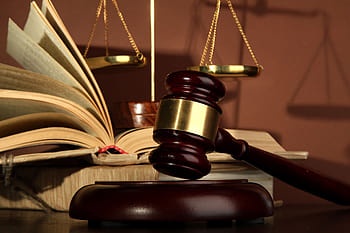Criminal law in Washington, D.C (District of Columbia) is a dynamic and complex legal field that plays a vital role in maintaining public safety and upholding the principles of justice. This article provides an extensive overview of criminal law DC., including the legal framework, procedural elements, and the evolving challenges that the criminal justice system faces. Understanding the nuances of criminal law in D.C. is essential for legal professionals, policymakers, and citizens committed to a just and safe society.
Criminal law in the District of Columbia forms the foundation of the legal system governing offenses, their penalties, and the rights and responsibilities of individuals within its jurisdiction. This article aims to provide a comprehensive analysis of criminal law in Washington, D.C., encompassing key principles, legal procedures, and the contemporary challenges confronting the system.
Legal Framework and Principles:
The legal framework of criminal law in D.C. is based on well-established principles that guide the system, including:
- Presumption of Innocence: Every individual accused of a crime is presumed innocent until proven guilty beyond a reasonable doubt in a court of law.
- Elements of a Crime: Criminal offenses consist of specific elements that the prosecution must prove to secure a conviction. These elements vary depending on the offense and its classification.
- Due Process: The U.S. Constitution guarantees due process, ensuring that defendants have a fair and impartial trial, access to legal counsel, and protection from self-incrimination.
- Sentencing Guidelines: D.C. utilizes sentencing guidelines to determine appropriate penalties for offenses. These guidelines aim to ensure uniformity in sentencing while considering the unique circumstances of each case.
Procedural Elements:
Criminal law in D.C. follows a structured legal procedure that encompasses several key elements, such as:
- Arrest and Booking: The process of an arrest begins with the apprehension of a suspect and is followed by booking at a police station.
- Charges and Initial Appearance: The accused is informed of the charges against them and brought before a magistrate or judge for an initial appearance.
- Preliminary Hearing: In felony cases, a preliminary hearing may occur to determine whether there is sufficient evidence to proceed to trial.
- Trial and Sentencing: If the case proceeds to trial, the prosecution and defense present evidence, and a verdict is reached. If convicted, the defendant is sentenced according to applicable guidelines.
Evolving Challenges:
Criminal law in D.C. faces numerous contemporary challenges, including:
- Criminal Justice Reform: criminal law DC. is actively engaged in criminal justice reform efforts, focusing on reducing incarceration rates, improving rehabilitation, and addressing racial disparities in the system.
- Cybercrimes: The rise of cybercrimes poses new challenges for law enforcement, necessitating adaptations to existing legal frameworks to address digital offenses effectively.
- Police Accountability: Ensuring police accountability and addressing issues of excessive force and misconduct are ongoing concerns in the D.C. criminal justice system.
- Emerging Threats: Preparing for emerging threats, such as domestic terrorism and organized crime, remains an evolving challenge for the legal and law enforcement communities.
Conclusion:
Criminal law DC is a dynamic and multifaceted field, deeply rooted in legal principles while continuously adapting to address contemporary challenges. Understanding the legal framework, procedural elements, and the evolving nature of the criminal justice system is crucial for those working within it and for the broader community invested in ensuring a just and equitable society. As the field of criminal law continues to evolve, policymakers and legal professionals in D.C. must work collaboratively to strike a balance between public safety, individual rights, and societal justice.


No comments yet